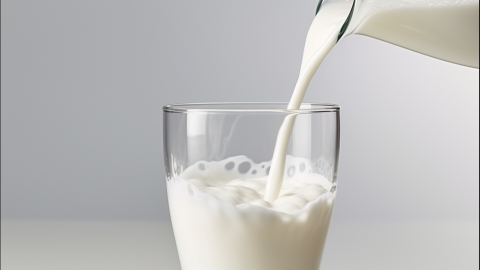What should not be consumed with daylily (Huanghuacai)?
Generally, daylilies should not be consumed with foods such as milk, rabbit meat, pigeon meat, quail eggs, or persimmons. They also should not be taken together with medications such as Roxithromycin Capsules, Sulfadiazine Tablets, Aspirin Enteric-coated Capsules, Desogestrel and Ethinylestradiol Tablets, and Sodium Bicarbonate Tablets. Detailed explanations are as follows:

I. Foods
1. Milk
Milk is rich in nutrients such as calcium and protein, while daylilies contain a certain amount of oxalic acid. Oxalic acid can easily combine with calcium in milk to form calcium oxalate, which not only reduces the absorption rate of calcium in milk but also may increase the risk of stone formation if consumed together in large quantities over a long period.
2. Rabbit Meat
Rabbit meat is cool in nature and has effects such as nourishing the middle energizer and invigorating qi. Daylilies are also cool in nature. Consuming them together enhances the cold nature, which may lead to spleen and stomach deficiency-cold, affecting the normal digestive function of the spleen and stomach, causing symptoms such as indigestion, abdominal pain, and diarrhea.
3. Pigeon Meat
Pigeon meat is a warming food that benefits the liver and kidneys and replenishes blood and qi, whereas daylilies are cool in nature. Consuming both together causes conflicting cold and heat properties, which may disrupt the body's balance of cold and heat, affect normal bodily functions, and lead to physical discomfort.
4. Quail Eggs
Quail eggs contain nutrients such as protein, vitamins, and minerals. Components in daylilies may react with proteins in quail eggs, forming substances that are difficult for the human body to digest and absorb, thereby reducing the nutritional value of the food.
5. Persimmons
Persimmons contain large amounts of tannic acid, while daylilies are rich in fiber and other components. When tannic acid combines with fiber, it may form indigestible substances in the gastrointestinal tract, slowing down intestinal motility and affecting nutrient absorption.
II. Medications
1. Roxithromycin Capsules
Tannic acid in daylilies can neutralize the alkaline components in Roxithromycin Capsules, affecting drug absorption and efficacy.
2. Sulfadiazine Tablets
Sulfadiazine Tablets need to be combined with acidic substances to exert their therapeutic effects, but daylilies contain large amounts of alkaline substances that can reduce the efficacy of sulfonamide drugs.
3. Aspirin Enteric-coated Capsules
Some components in daylilies may enhance the side effects of Aspirin Capsules, causing gastrointestinal discomfort and peptic ulcers.
4. Desogestrel and Ethinylestradiol Tablets
Some components in these tablets may interact with certain components in daylilies, reducing the drug's effectiveness.
5. Sodium Bicarbonate Tablets
Daylilies contain large amounts of calcium, which can react with sodium in Sodium Bicarbonate Tablets to form insoluble precipitates, affecting drug absorption and efficacy.
In daily life, attention should be paid to the freshness of daylilies when consuming them. Fresh daylilies contain colchicine, which should be blanched in boiling water and thoroughly soaked before consumption to remove colchicine and prevent poisoning.






